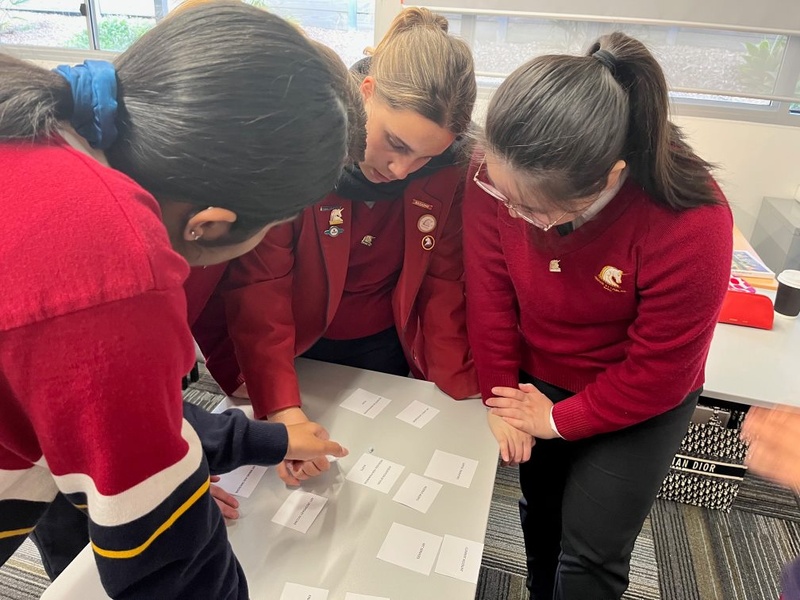Economics is the study of how resources are allocated to meet the needs and wants of society. It attempts to explain how and why people behave the way they do and the consequences of their decision-making. Economics provides students with valuable insight into issues that may affect them both individually and as members of society. It also assists them to make more informed and responsible decisions and to contribute to public debate as active citizens.
Economics is a dynamic and constantly evolving field. It is the study of how humans behave and the decisions that are made to meet the needs and wants of society. Studying Economics enables valuable insight into the economic problems that may face society on an individual, domestic and global levels.
Economic decision making
In this unit students explore their role in the economy, how they interact with businesses, and the role of the government in the economy. Students are introduced to and explore fundamental economic concepts. They use demand and supply models to explain changes in prices and quantities traded. Through close examination of one or more markets, they gain insight into the factors that may affect the way resources are allocated in an economy and how market power can affect efficiency and living standards. They examine basic economic models and investigate the motivations behind both consumer and business behaviour. Students investigate contemporary examples and case studies to enhance their understanding of the introductory economics concepts.
Economic issues and living standards
In this unit students focus on the possible trade-off between the pursuit of growth in incomes and production and the goal of environmental sustainability and long-term economic prosperity. They investigate the importance of economic growth in terms of raising living standards and evaluate how achievement of this goal might result in degradation of the environment and the loss of key resources. Students examine whether the goals of economic growth and environmental sustainability can be compatible and discuss the effect of different policies on the achievement of these important goals. They evaluate the role of government intervention in markets and discuss whether achieving greater equality causes a decline in economic growth and average living standards at both domestic and global levels.
Assessment
All assessments for unit 1 & 2 are school based. Tasks will be selected from the following
- an analysis of written, visual and statistical data
- a folio of applied economic exercises
- problem solving tasks
- a blog of media commentaries
- a report or investigative inquiry
- a debate
- essays
- presentations (oral, written, visual)
- medial analysis
- case study analysis
- tests
Australia's living standards
In this unit students investigate the role of the market in allocating resources and examine the factors that affect the price and quantity traded for a range of goods and services. Students develop an understanding of the key measures of efficiency and how market systems might result in efficient outcomes. Students also develop an understanding of the macroeconomy. They investigate the factors that affect the level of aggregate demand and aggregate supply in the economy and apply theories to explain how changes in these variables might affect achievement of domestic macroeconomic goals and living standards. Australia’s living standards depend, in part, on strong economic relationships with its major trading partners. Students investigate the importance of international economic relationships and the effect of these on Australian living standards. Students also analyse how changes in the value of the exchange rate, the terms of trade and international competitiveness affect the domestic macroeconomic goals.
Managing the economy
In this unit students develop an understanding of how the Australian Government can alter the composition of budgetary outlays and receipts to directly and indirectly affect the level of aggregate demand, the achievement of domestic macroeconomic goals and living standards. Students also examine the role of the RBA with a focus on its responsibility to conduct monetary policy. Students consider how the tools of monetary policy can affect interest rates, the transmission mechanism of monetary policy to the economy and how this contributes towards the achievement of the domestic macroeconomic goals and living standards. Students consider how the Australian Government utilises selected aggregate supply policies to pursue the achievement of the domestic macroeconomic goals and living standards over the long term.
Assessment
The level of achievement for Units 3 and 4 is assessed by School-assessed coursework and an end of year examination.
School-assessed course work for Unit 3 will contribute 25% to the study score.
School-assessed course work for Unit 4 will contribute 25% to the study score
The external VCAA examination will contribute 50% to the study score.

Student Point of View
What kind of learner is best suited to study this subject?
Analytical and problem solving skills
Critical, independent and logical thinker
Being involved in discussions
What key skills are required for success?
Ability to apply theory to practical and current situations
Evaluate theories/concepts
What are three most engaging topics studied?
Domestic Macroeconomic Goals, Budgetary Policy, Monetary Policy
What are the learning activities in this subject like?
Interesting and relevant
Related to real world situations
Reading graphs and charts and analysing statistics
Interactive – Have opportunities for discussions.
Student voice
The study of Economics helps students to understand the world around them and it enable them to understand how individuals, businesses, markets and governments respond to changing domestic and international situations. Economics is a subject that can provide students with a clear insight into domestic and global issues that may affect them individually and as members of society. Concepts in economics help student to make more informed and responsible decisions and contribute to society as informed citizens.
Studies in VCE ECONOMICS can lead to study and career options in the following areas:
Accountant
Auditor
Bank officer
Business analyst
Company secretary
Corporate treasurer
Diplomat
Financial advisor
Financial journalist
Financial planner/Manager
Human resource developer
Investment analyst
Management consultant
Marketing officer
Market researcher
Portfolio manager
Project manager
Statistician
Stockbroker
Tax agent
Teacher
Trade analyst
University lecturer
Valuer




